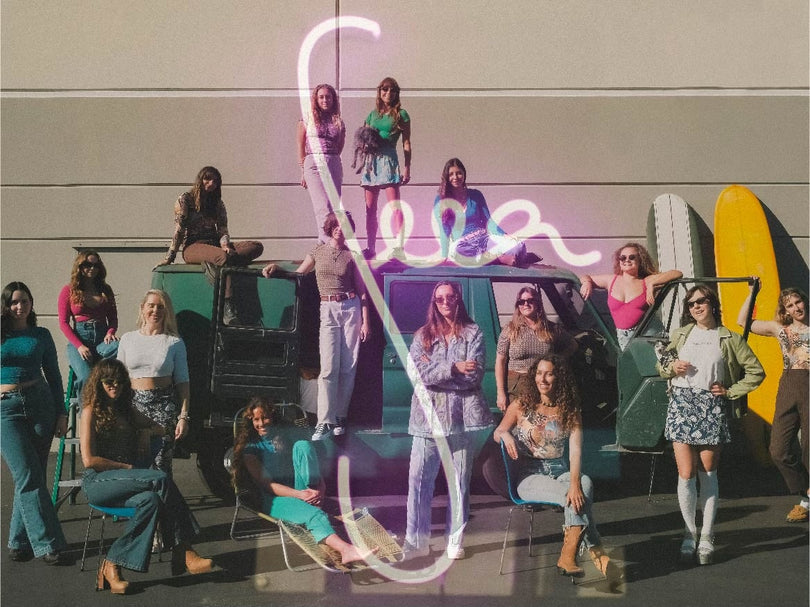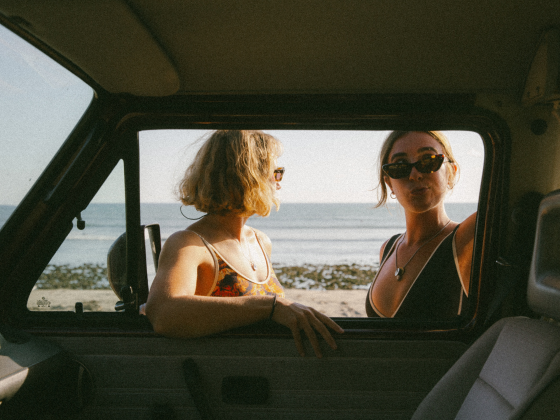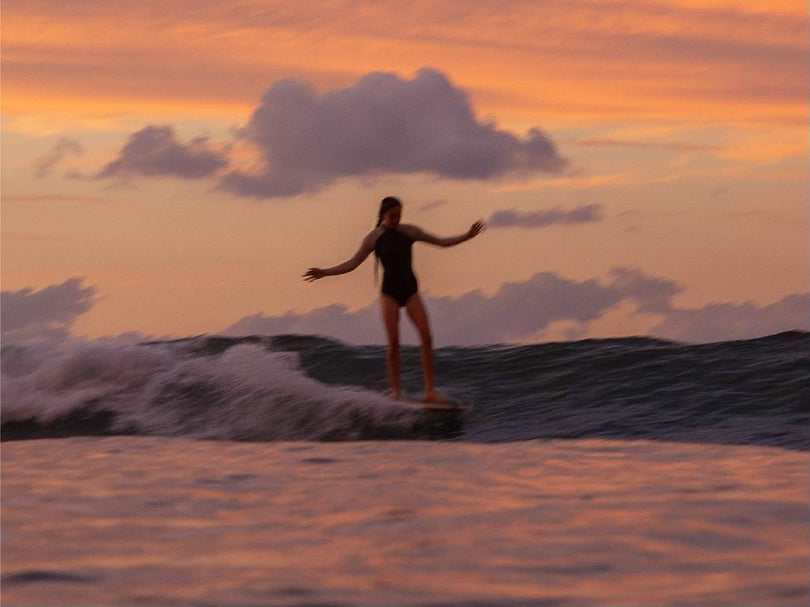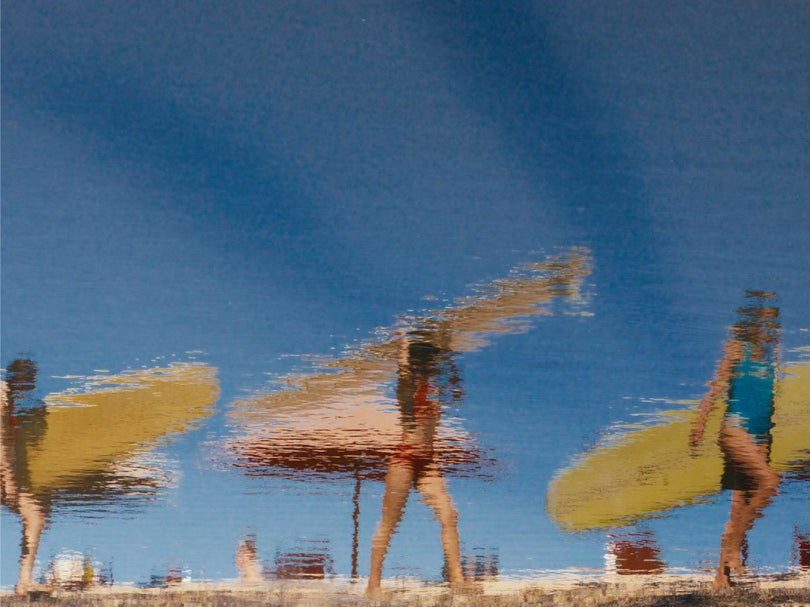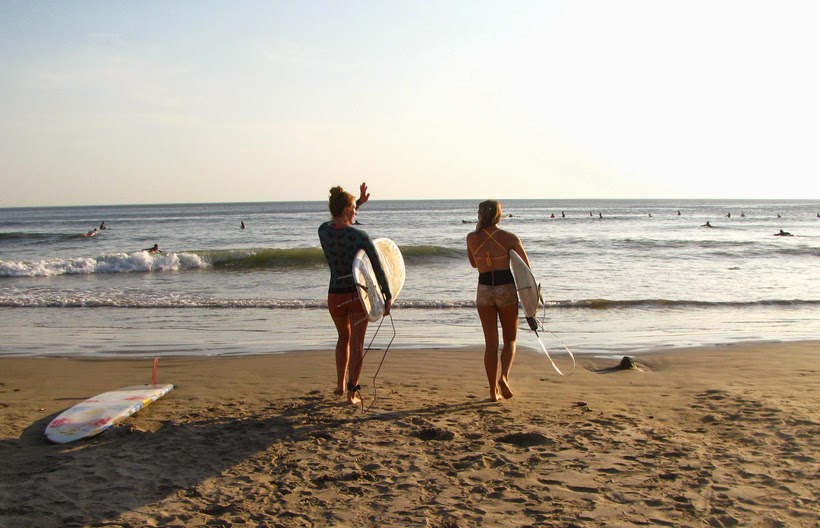 |
| Left, Groundswell founder Sarah Hughen and Seeababe Jenayl Peters paddle out between classes in Nicaragua. |
Surfers and adventure-seekers deliberately travel to underdeveloped countries to experience raw nature and special waves. If you’ve ever wondered what our tourist impact is on the local people and what you can do to make sure its positive, look no further than Groundswell Educational Travel.
Picture an itinerary that starts by surfing at the best beaches in the morning, regrouping for educational classroom lessons about responsible tourism for college credit and then going out into the local community to volunteer and learn hands-on. Groundswell goes on several 8-10 day trips per year including Panama, Peru, Costa Rica, Nicaragua and Peru and attracts a lot of students, but non-students are welcome to join too.
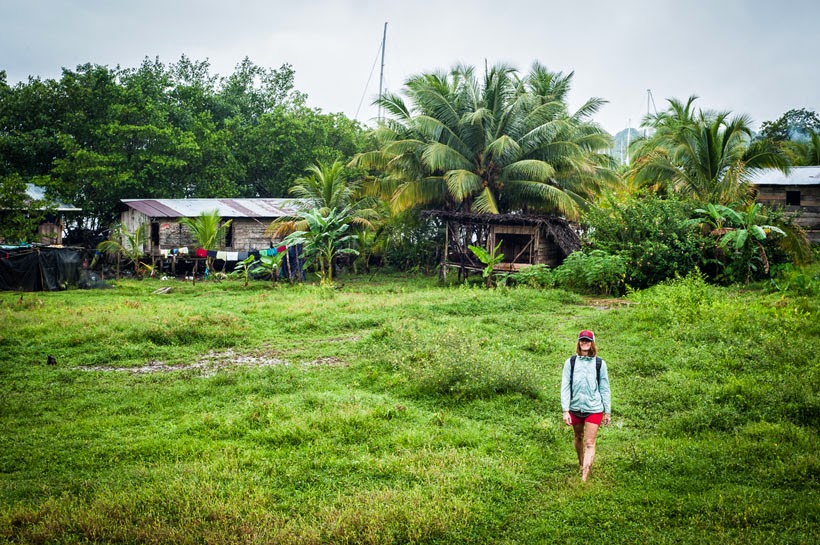 |
| Groundswell founder, Sarah Hughen, on her way to visit the school in the small indigenous community of Bahia Honda in Panama. |
We were introduced to Groundswell Educational Travel, by founder Sarah Hughen who first caught our eye from her last project Wave-a-Day, which raised awareness for breast cancer by committing to surf every day for a year straight.
“I made honoring the women who are affected by breast cancer my daily mission no matter what,” Sarah says about Wave-a-Day. “There were days that I wanted to give up. Days when I had a fever and the stomach flu, but I still paddled out to catch a wave.”
Wave-a-Day gave Sarah a closer look at environmental issues associated with surfing. “Pollution in the water, trash in the line up and on the beach, and non-sustainable industry standards. By educating people and making them advocates for awareness we can make incremental change,” says Sarah of the goals of Groundswell. As a frequent traveler, Sarah recognized how communities changed with tourism dollars passing through and wanted to do something about it.
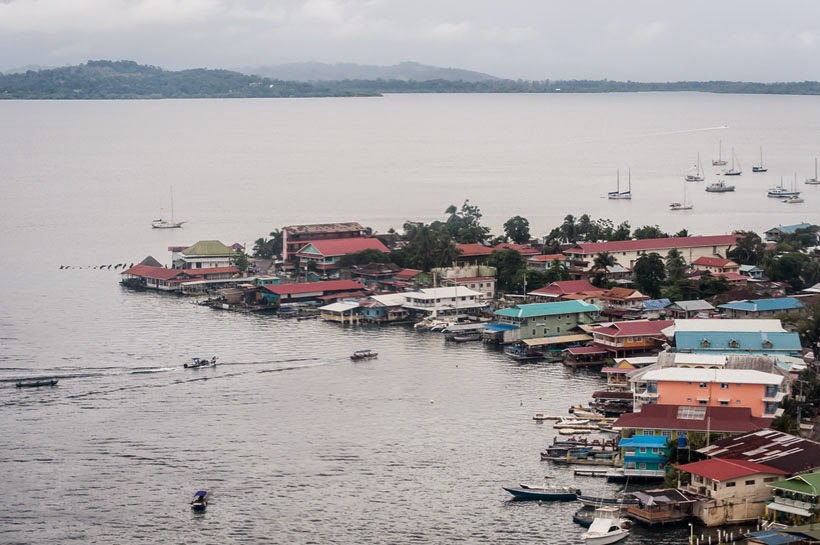 |
| The water's edge of Isla Bastimentos in Panama where Groundswell visited. |
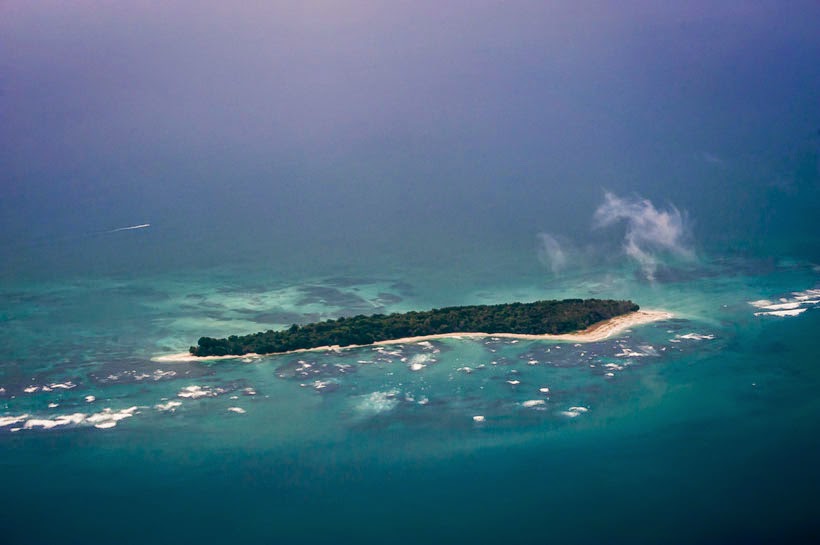 |
| Aerial view of Bocas Del Toro Islands in Panama. |
Earlier this year, Groundswell wrapped up a trip to Bocas Del Toro and Isla Bastimentos in Panama and our very own Seeababe, Jenayl Peters just returned from a trip to Playa Gigante, Nicaragua.
We caught up with Sarah and Jenayl after their travels to find out more about how to be responsible tourists.
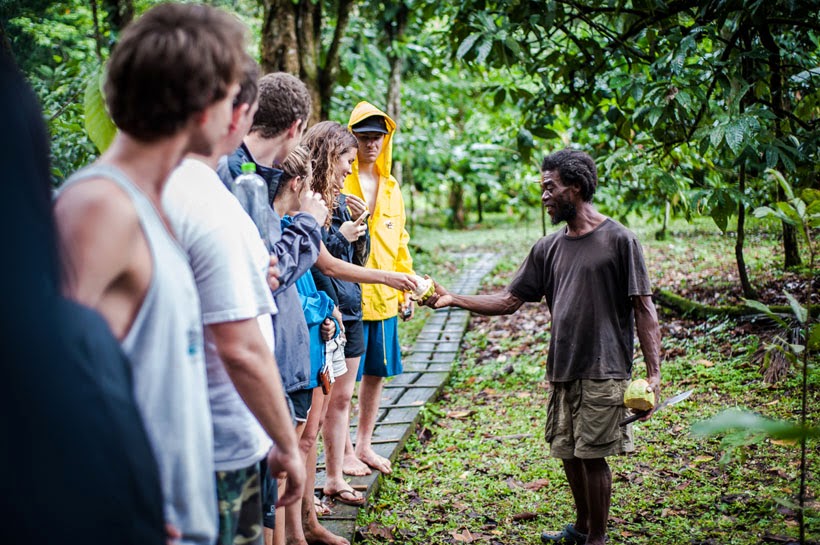 |
| Groundswell visits a sustainable chocolate farm in Panama. |
Groundwell tailors curriculum to each location where you are going. What were some of the projects you focused on in Panama and Nicaragua?
Sarah: We take a closer look at ways to preserve the cultural integrity of a location as well as reduce the environmental impact that tourism brings. Often, these locations don't have the plans to support the tourism and it has a very negative effect on the place and it's communities.
A few programs down in Panama have been put in place to allow the locals to benefit in a positive way from the boom of tourism and more specifically surf travel. We visited with Neil Christiansen from Give and Surf and worked with the local Ngobe tribe, learning about their education program that is supported by volunteers.
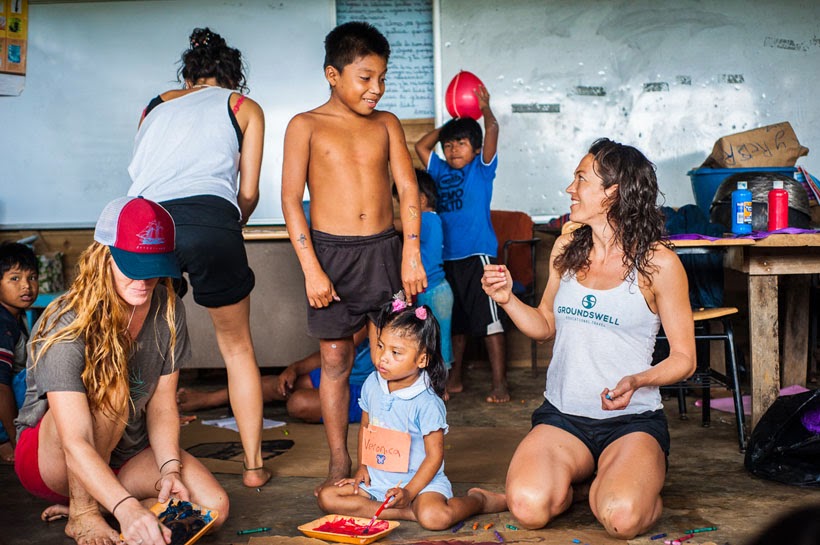 |
| Groundswell in Panama volunteered at the local schools. |
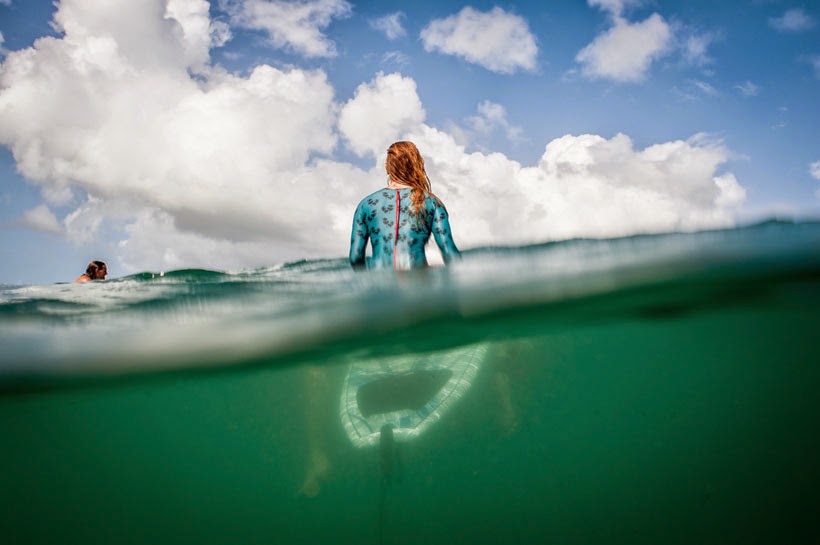 |
| Sarah wore the Swamis surfing in Panama. |
What did you learn about how surf tourism has changed the culture of places where you traveled?
Sarah: The world is sprinkled with world-class waves, and many of those waves are in places that you would never normally travel to if there didn't happen to be surf there. People in the past saw our world's wilderness places in threat — both from industry and from unregulated tourism. With so many people traveling for surfing these days, and those number growing at a rapid pace, the need to preserve the waves and its communities is here.
It is happening now, right before our eyes. There are simple ways to have surf travel positively impact and support the local communities that the waves are in. Groundswell looks at the ways in which to do so.
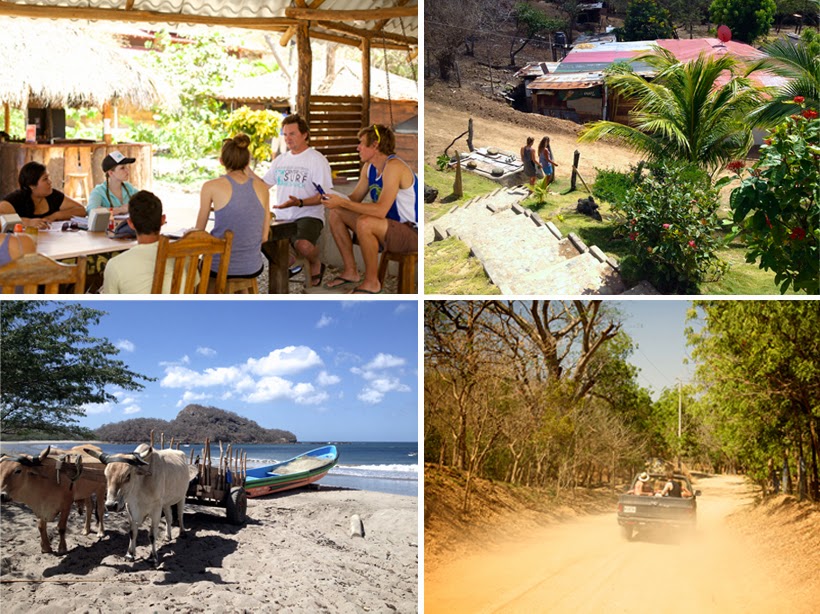 |
| Clockwise from top left: Groundswell in the classroom and the scenery around Nicaragua from the dirt roads to the coastline. |
Jenayl: Surf tourism in Nicaragua is rapidly growing and has the ability to impact the country in a healthy way. [At the hotels where we stayed,] many of the employees were people of Nicaragua and Nicaraguan-owned. They were excited to help us with whatever we needed.
It was exciting to eat at restaurants employed by locals, eat fish from the local fisherman, and even be taken on a boat ride out to a reef break by a man that doesn't even surf himself, but offers his services and boat for that reason! If travelers, and especially those seeking good surf, can understand the benefits of interacting and understanding that local culture, surf tourism can be better recognized as an asset to cultural and economic growth mutually rather than us surfers just going and selfishly taking waves.
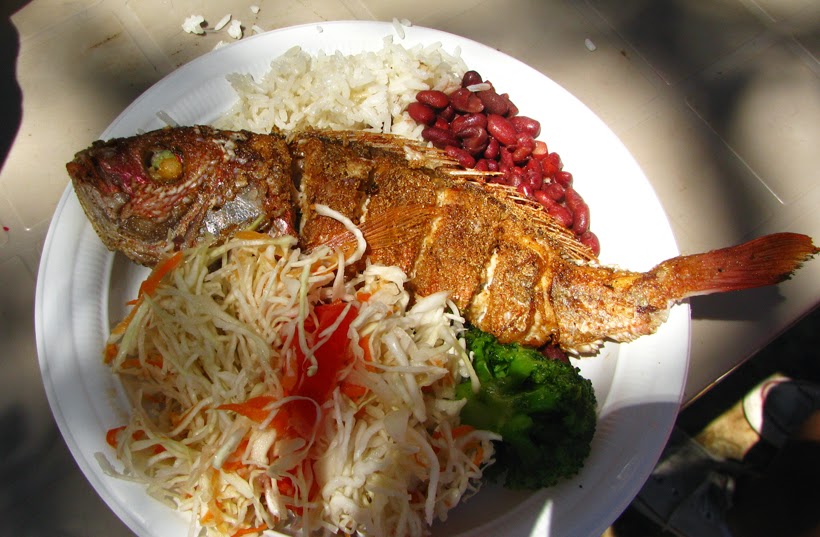 |
| Dining on the fresh catch in Nicaragua. |
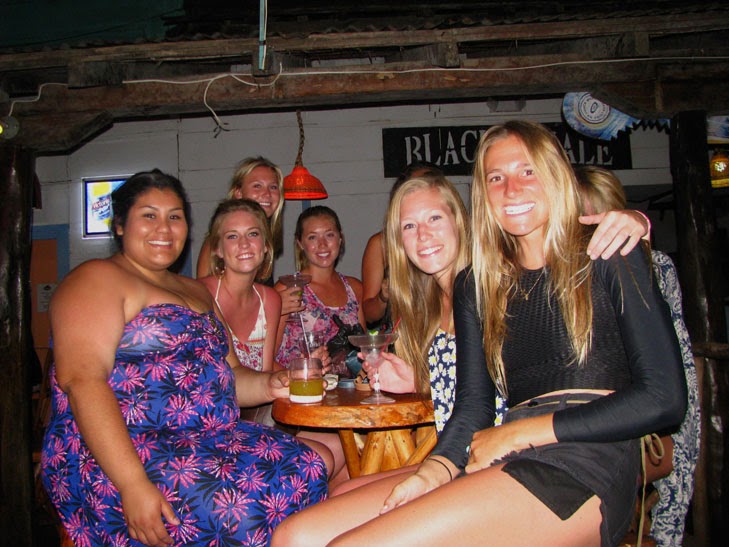 |
| Out to dinner in Nicaragua, supporting the local restaurants! |
What advice do you have for surf travelers to Central America?
Jenayl: For future travelers to countries like Nicaragua, it is awesome to know you can have an impact on the culture and future of the place. When you are choosing your hotel, or where to go out for dinner — support local! It is just as much fun for them to share their lifestyle when we respect it and are willing to engage! Not only are you helping their business and economy, but you are showing respect and interests to their town and their home in which you are visiting.
This creates community and understanding of two cultures coming together, and it is so much more fun and creative to be involved with what they can teach us. When you are surfing the local break as well, talk with the locals! They rip, so definitely respect the etiquette, but more often than not, in places like Nicaragua especially, they are excited to see new faces and enjoy engaging in the session together.
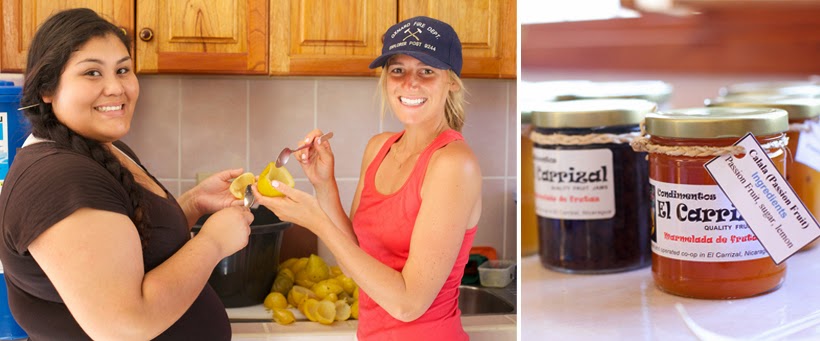 |
| One of the Groundswell field trips in Nicaragua was to make jam with local women. |
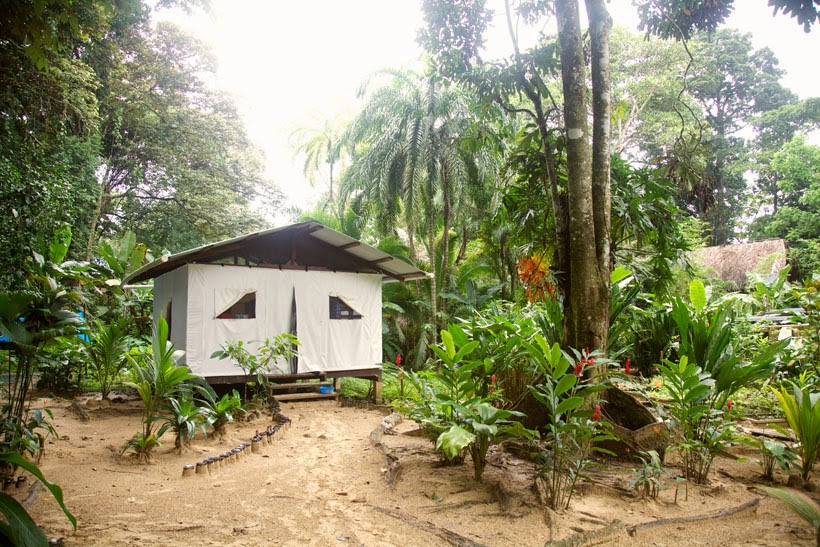 |
| Choose to support local businesses. One of the tents at the off the grid Palmar Tent Lodge on Isla Bastimentos, Panama. |
Why do surfers have a responsibility to respect the places where they travel?
Sarah: Just as any person needing to respect the place they travel, surfer's need to do the same. If we don't address the issues now, and create global citizens for change, then all the special places in the world will fade away. It happens fast.
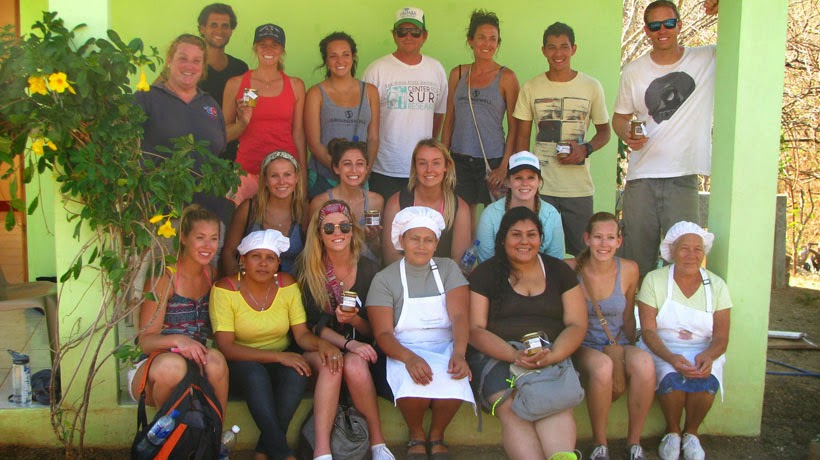 |
| Group photo! Groundswell in Nicaragua. |
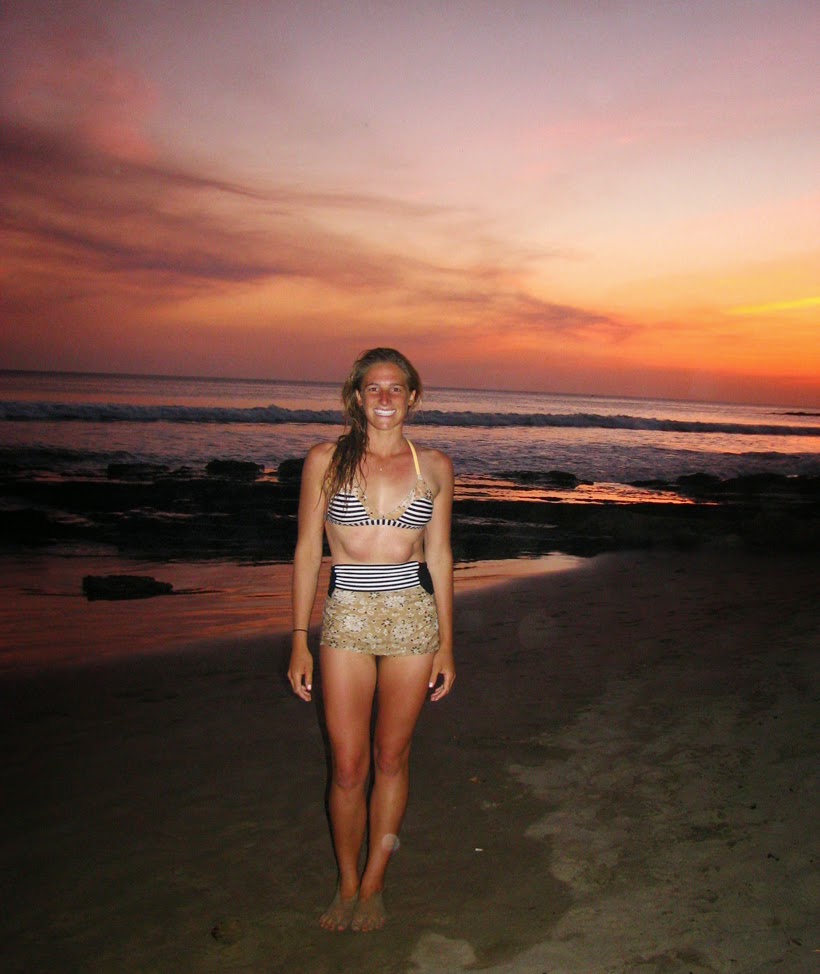 |
| Happy sunset from Nicaragua! Jenayl in the Leucadia. |
To find out more about Groundswell Educational Travel and their next trip, go to their website.
To read more about Central America surf camps — some that offer volunteer opportunities if interested — check out Vacation Planning Made Easy: Central America Surf Camps
Click to shop Sarah’s Swami’s Suit, Jenayl’s Leucadia Bikini and Hermosa Surf Suit for your next trip!

